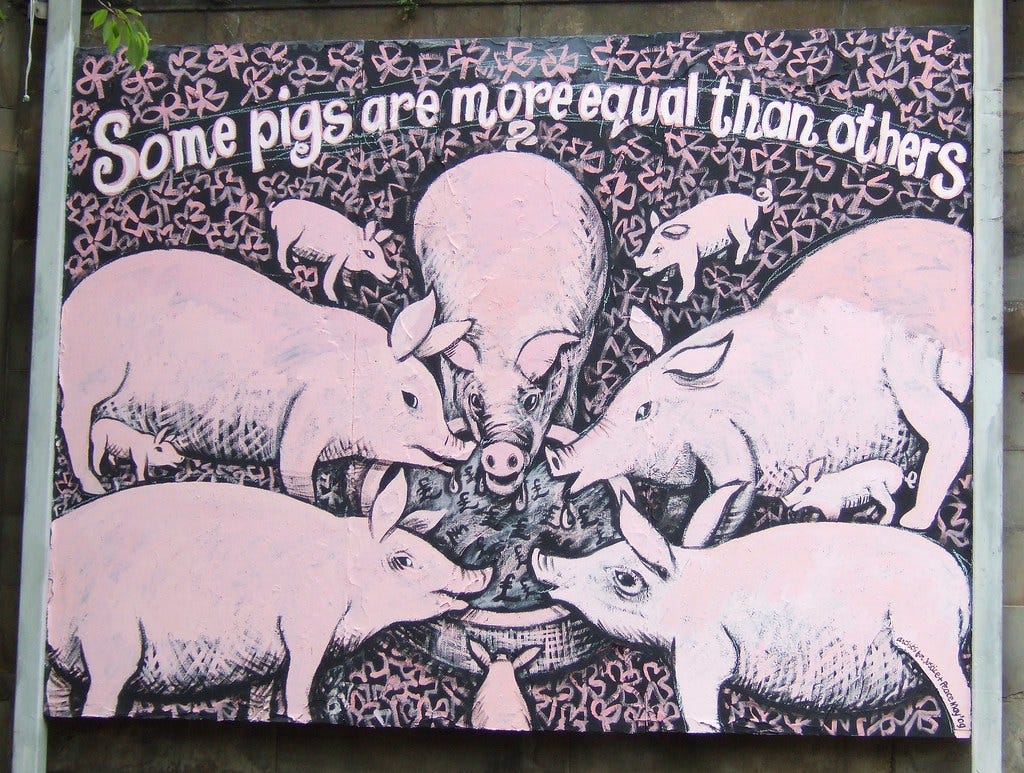In an engagement interview with Meghan Markle and Prince Harry, she said it was a blind date through a mutual friend:
'I didn't know much about him, I just asked, "Is he nice?"' - YouTube
She hit the point.
When you join a team, you often wonder how your leader is. Are they nice? Some are. Others not so much.
But, the big truth is that being nice is not enough to work with people. It is a good start to the relationship, but managers need more meat on their bones moving forward.
You won’t read about the lack of boundaries today. You know that one already. Let’s look at feedback, emotions, dependency, inequality, and poor innovation.
Feedback impact is poor.
“Your project management skills suck, but you’re nice. Haha.”
When you’re nice, you don’t want to hurt other people. You avoid direct feedback because you don’t want to ruin your image and relationships.
Wrong!
“You didn’t deliver, but that’s ok.” I, too, said such a thing in the past - silly me. If employees always receive praise, even for mediocre work, they might not take you seriously when they actually achieve something.
It’s hilarious to think that being nice inhibits the whole motivational and developmental potential of feedback.
Such a missed opportunity.
Don’t let people question your judgment. Kindness and positivity are important traits for a manager, praise must be used selectively and appropriately.
Be honest when it sucks.
Suffer from emotional exhaustion.
Being nice to maintain harmony in the workplace is The Myth of Sisyphus. You simply can’t do it alone and over time.
Managing people involves handling different personalities, emotions, and heya conflicts.
If you focus on keeping everyone happy, no one will be happy. Plus, it can become a significant emotional burden.
You don’t do tasks or meetings. You also have emotional labor at work. Continuously putting on a “happy face”, even when stressed, creates internal tension and mental fatigue.
Have you ever wondered why you are so drained when you come from work? Maybe excessive empathy? Maybe it is your clown face with an endless smile.
As they say, work smarter, not harder.
Don’t pressure yourself with extra emotional labor. Be human like everyone else.
Watch out for over-reliance.
Come to your manager. They will tap your shoulder.
Niceness can foster dependency. When you are always available to help and fix problems, you parent, not lead your team.
Your coworkers are adults like you. They should be able to handle their emotions, failures, and troubles themselves.
Common, they call for autonomy, but come to you for a hug.
If your goal is to develop others, your team needs to face challenges, and difficult clients, and own their mistakes.
Don’t intervene if something goes wrong. People develop the most when they feel accountable. That means they need you to be critical.
Critics smoothen the edges and build confidence.
When employees are constantly looking to the manager for answers, it stifles creativity and independent thinking. Don’t be too nice and too quick to assist. They don’t need you that much.
Let them know you have their back but let them decide here and there.
Inequality in your team
Animal Farm by George Orwell published in 1945 is still relevant today:
If you are trying to be nice, it may inadvertently create an unbalanced dynamic where more assertive team members take advantage of your kindness.
This can lead to certain people receiving preferential treatment, even if it’s not meant like that. The silent ones feel neglected and unappreciated.
That is how it is.
If you don’t ask, you don’t get it. Some ask a lot and nice managers give it to them.
Surprise, surprise.
Look at your team, and think if you are not part of the problem.
Being nice is sometimes not enough to create a good team environment.
No risks or innovation.
“As long as it works.”
“We don’t need any changes.”
“You made a mistake? Don’t worry.”
It is troubling to even read these. But they are some classic statements you can hear in every corporate environment.
If your culture is too comfortable and nice, people feel everything is fine. Without a bit of constructive tension or the push to challenge rules and norms, your team might not take the necessary risks for innovation.
No risks = no growth.
There is nothing bad with being comfortable in your role. Still, the risk is there is often low motivation to push boundaries or explore new ideas is high.
Is your ‘nice’ = good enough? No wonder why people leave your company.
You need conflicts and debate. You can be nice during resolutions and conversations. These are not the opposites.
Productively use your ‘niceness’.
TL;DR
Being nice is a good trait. But still, it might not build relationships as you would wish. I have learned a lot from tough managers who criticized me and challenged me.
I had nice managers, but I don’t remember much more about them. They were just nice.
The balance is good but rare. But let’s go to work now! Ivona
On the menu:
Thursday Newsletter: What if You Don’t Have What It Takes







